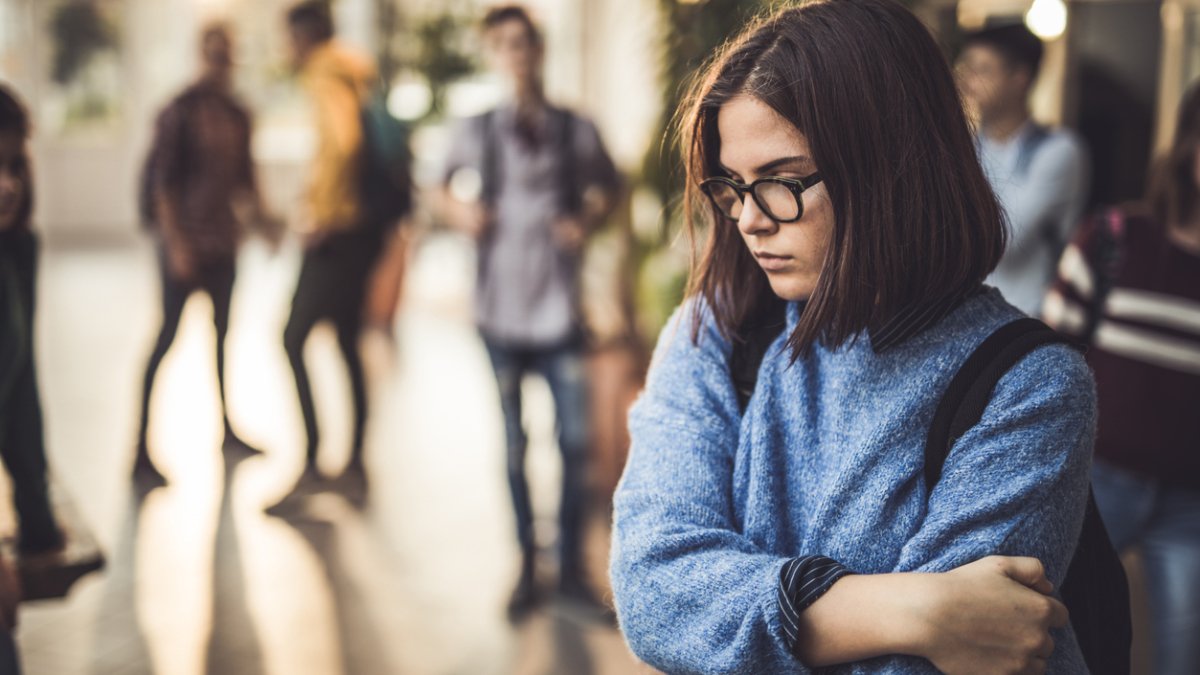Social Anxiety: What It Is And What You Can Do About It
Anxiety can take many forms. You might not deal with generalized anxiety disorder (GAD), but certain things can trigger a lot of fear and worry—including social settings.
Sound familiar? If so, you might be dealing with social anxiety. While most people have at least heard of this type of anxiety, there are plenty of misconceptions as to what it really is and what it looks like.
Misunderstanding social anxiety can make it seem like some kind of antisocial character trait. But, it’s so much more than that.
Let’s take a look at some of the defining characteristics of social anxiety, and what you can do if you’re struggling with it.
What Causes Social Anxiety?
There are many factors that can come into play and contribute to social anxiety. Maybe you’ve had difficulty navigating social situations for a long time, so you’re not sure where your fear stems from. If that’s the case, consider thinking back on negative social experiences from the past—including childhood.
Maybe you were bullied or picked on as a child, or maybe you felt rejected or neglected by your own family. Those experiences can shape the way you view social interactions for years. Genetics and behavioral factors can also contribute to social anxiety. For example, if you had overprotective parents who tried to shield you from a lot of social settings and experiences, you might be more likely to develop anxiety later on in life.
What Are The Symptoms?
There’s a big difference between being introverted and having social anxiety. Most people with social anxiety disorder don’t want to feel the way they do when faced with a social setting. So it’s important to recognize that it’s not a choice but often an overwhelming fear that’s difficult to control.
One of the biggest signs of social anxiety is a fear of judgment or embarrassment. When faced with a social situation, you might be worried that people are talking about you behind your back or thinking negative things about you, even if the likelihood of that is low. As your anxiety starts to take hold, you might even feel more anxious that people will notice you’re uncomfortable, creating a sort of vicious cycle that’s hard to break.
Some of the other common signs of social anxiety include:
Expecting the worst possible outcomes in social settings
Avoiding speaking to people because you’re embarrassed
Fear of talking to people you don’t know
Anxiety over a specific event
Social anxiety can be so powerful that symptoms manifest physically, too. You might experience sweating, trembling, nausea, headaches, and muscle aches as a result of your anxiety. Again, that contributes to a negative cycle. The worse you feel, the less likely it is that you’ll want to step out into a social situation.
Obviously, social anxiety can make it difficult to lead a full life. It doesn’t just stop you from attending big social events. It can make it difficult to go to school, work, and parties. You might even struggle with going to the doctor or going on dates. Even around people you know, you might have trouble with conversation or making eye contact.
What Can You Do?
If you want to overcome social anxiety, you don’t have to do it on your own. Self-care practices like journaling, mindfulness, and meditation are all great ways to manage your symptoms and keep track of how far you’ve come.
But, one of the best things you can do if social anxiety is affecting your quality of life is to work with a therapist. Therapy can help you develop a better understanding of where your anxiety stems from while offering active strategies and steps to overcome it. If you’re interested in learning about anxiety therapy, don’t hesitate to contact me.

